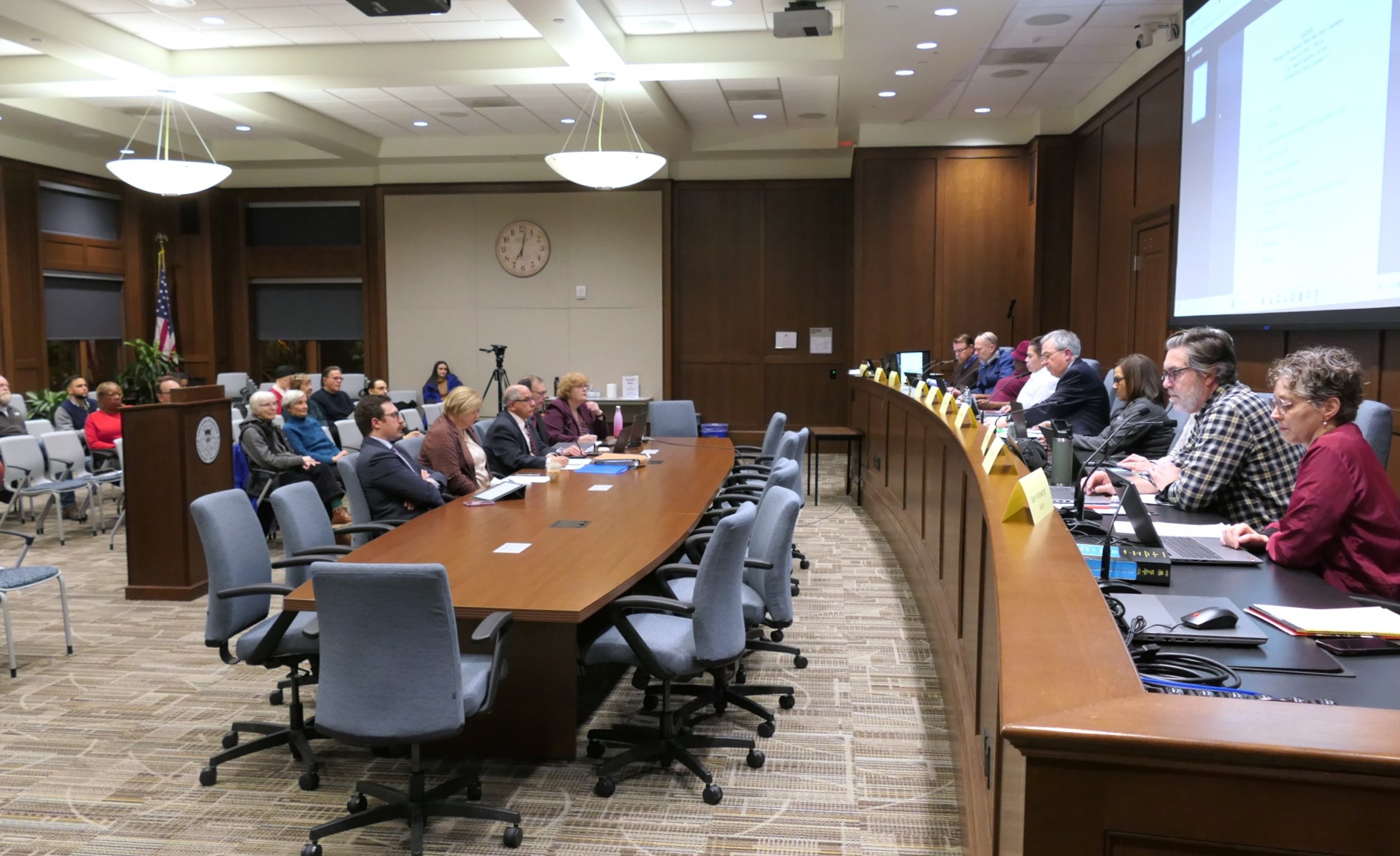Lancaster’s Home Rule Study Commission began laying out the framework for a future city government on Thursday, and several members made it clear they are interested in shaking up the existing structure.
The commission is tasked with drafting a charter, after having voted in January to proceed with doing so. Its goal is to finish by August, with the result going to the voters for a referendum in November.
While the commission agreed Lancaster should continue to have a mayor and a city council, at least three of its members appear interested in electing at least some council members by district, rather than at large.
After discussion, the commission tentatively settled on a city council roster of either seven (the current number) or nine. There was no interest in having the mayor be a city council member, as is the case in some municipalities. Keeping them separate clarifies who is responsible for what and promotes accountability, Carl Feldman said.
Tony Dastra proposed a system with nine council members: One representing each quadrant, four elected at large, plus a full-time council president, who would be the runner-up from the mayoral election.
That, he said, would be a way to avoid one-party rule and provide a counterbalance to the administration, without explicitly providing a minority-party carve-out. He also suggested the commission’s charter require more members to be added to city council as the population grows.
While Republicans were able to win city races in the 1990s and early 2000s, Democrats have held all elected positions since 2006 and currently enjoy an overwhelming registration advantage. Dastra, the founder of the independent Gold Goose party, advocates political pluralism rather than the dominance of one or both of the mainstream parties.
Automatically adjusting council’s size based on population would conflict with state law, said Gerald Cross of the Pennsylvania Economy League, the nonprofit providing advice and administrative assistance to the commission. The size of council is a “structure of government” issue and can only be changed by a study commission like the current one.
The most a charter could do, he said, would be to mandate a referendum on forming a study commission if a population threshold is reached. When such a commission is formed, however, its scope can’t be limited: Like the current one, it would be entitled to reexamine the government from top to bottom.
That said, the issue is likely moot, he said. Lancaster is a landlocked city whose census numbers have been stable for decades; the space to accommodate a substantial population expansion doesn’t exist.
Cross also said Pennsylvania election law may proscribe appointing the loser of an election to an elective office he or she wasn’t running for. Commission Chairman Brian Adams said such an arrangement could allow a patently subpar candidate to take office despite being rejected by voters.
Determining the right size for council will depend on whether elections are conducted by district, Darlene Byrd said. Elizabeth Elias concurred, saying that’s why she favors a council of nine rather than seven.
Length of term
How long should council members serve? The commission tentatively agreed to stick with the current four years, with staggered elections, though there were arguments pro and con.
Byrd said two-year terms offer more opportunity to vote representatives out of office — the public’s ultimate check on their power. Adams said that while overall he endorses four-year terms, two-year ones would be less daunting to prospective candidates and might prompt more people to run. Lynne Shedlock of PEL warned that two-year terms could lead to councils being elected with little or no collective institutional knowledge.
The commission’s game plan
The Home Rule Study Commission has scheduled meetings on the second and fourth Thursdays of each month, and has the option to schedule more, if needed. Meetings are open to the public and are normally livestreamed on the city’s YouTube page, though they can also be recorded and posted later.
It has also established four subcommittees, whose meetings are also public. To see their schedules, click here (PDF). They may or may not be livestreamed or recorded. All meetings are documented in minutes.
Adams noted that the commission’s decisions remain provisional until its official vote to approve the charter and put it up for a referendum, so decisions made early on can be revisited, if needed.
That’s true, Solicitor Barry Handwerger said: Nevertheless, the commission needs to reach consensus in a reasonably expeditious manner at each stage in order to keep the drafting process on track.






